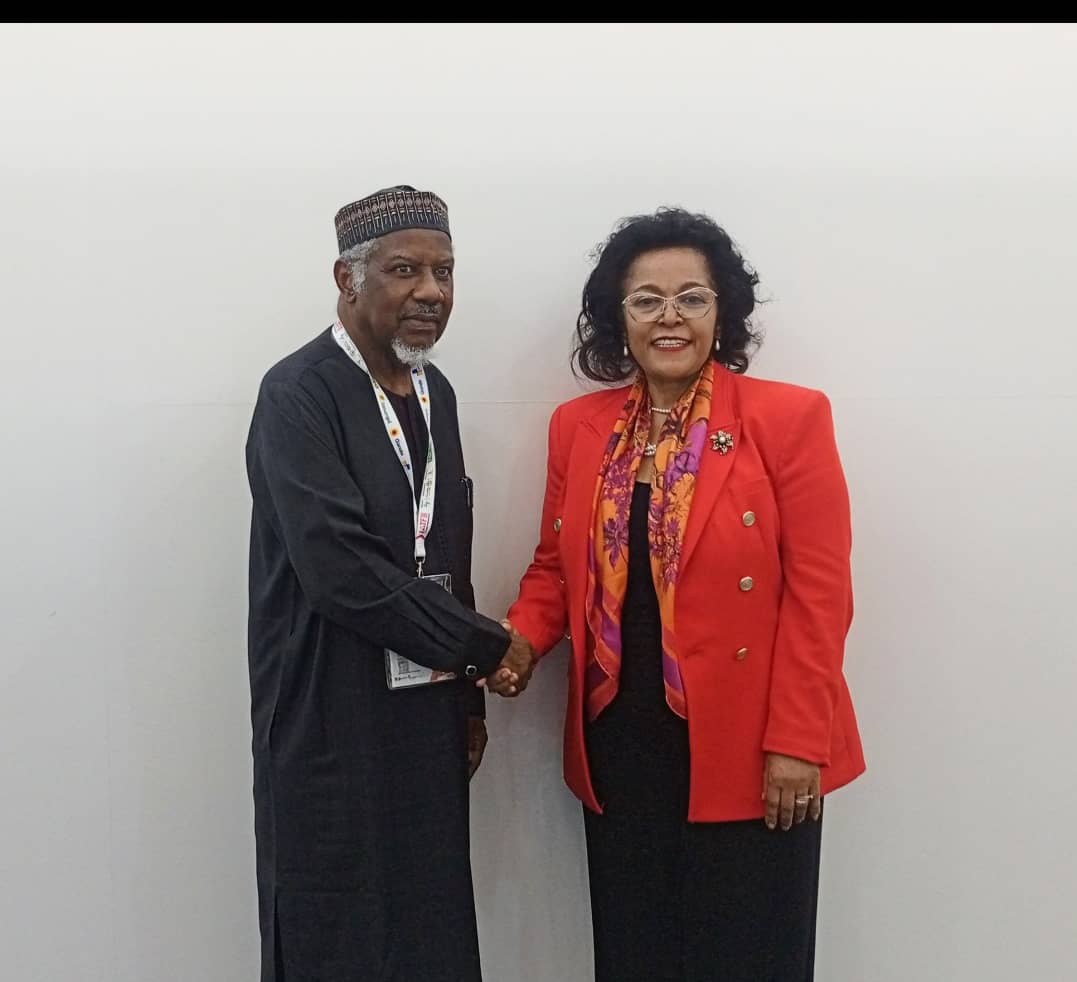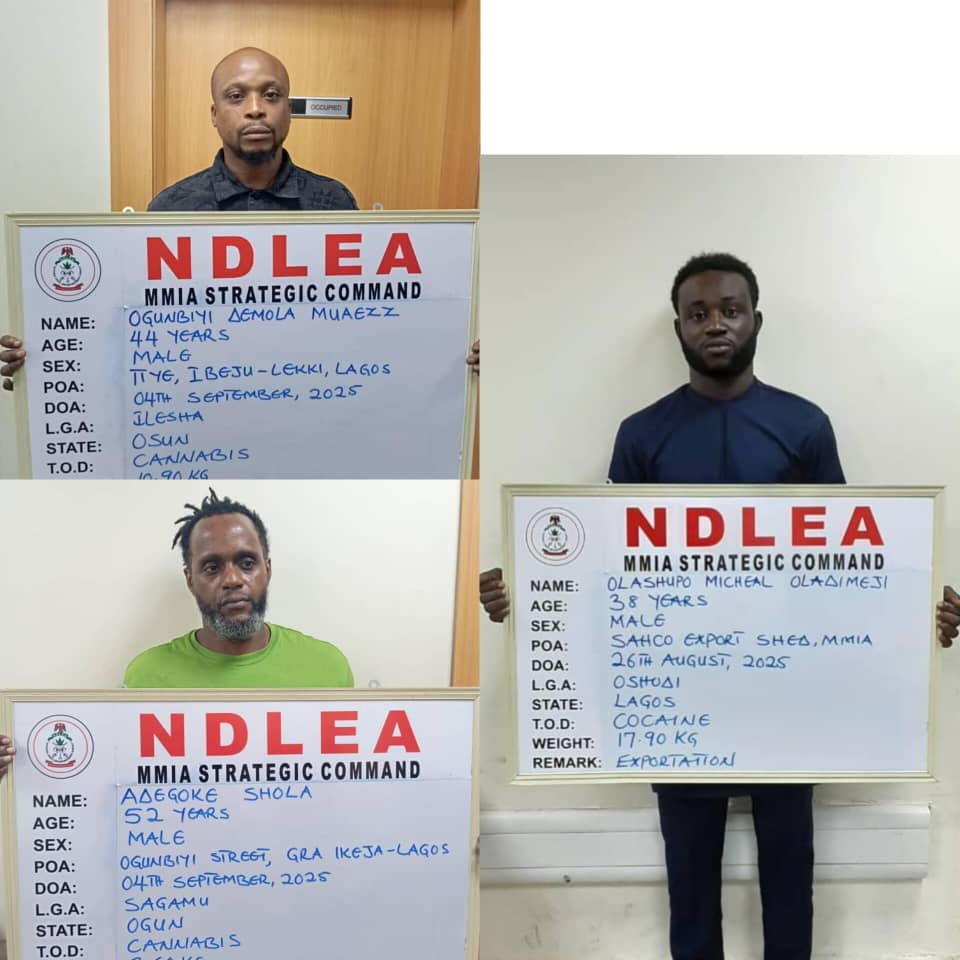Air travel is governed by a complex web of rules and regulations designed to ensure the safety, security, and smooth operation of flights. In Nigeria, these standards are enforced through the Civil Aviation Act, 2022 and the Nigerian Civil Aviation Regulations (NCARs), which outline the expected conduct of passengers, crew, and other individuals within airport premises and onboard aircraft.
Read Also: After the Final Salute: What Nigerian Law Says When a Former President Dies
Recent events have thrust these regulations into the spotlight, raising urgent questions about passenger behavior, crew authority, and the legal consequences of misconduct in aviation spaces. Within the span of one week in August 2025, two high-profile incidents captured national attention: the altercation involving Fuji music icon King Wasiu Ayinde Marshal (KWAM1) aboard a ValueJet flight, and a separate case of alleged assault by a passenger, Ms. Comfort Emmanson, on an Ibom Air crew member.
In this report, we unpack the legal implications of these events, exploring the rules around carrying liquids onboard, obstructing aircraft operations, and assaulting flight personnel. We also examine the responsibilities of airline staff and the ethical concerns surrounding viral footage of in-flight altercations.
Through this lens, we aim to clarify the legal framework that governs Nigeria’s aviation sector and highlight the consequences of breaching it.
The rules, obligations and prohibited behaviours that apply to passengers, crew, and other persons while within the secure and operational areas of an airport or on an aircraft. In Nigeria, such conduct is regulated by the Civil Aviation Act, 2022 and the Nigerian CARs (Civil Aviation Regulations).
On the 5th of August 2025, it was all over the news that popular Nigerian fuji musician, King Wasiu Ayinde Marshal (K1 De Ultimate or KWAM1) had an altercation with some of the crew members of a ValueJet Aircraft.
Read Also: Analyzing the Rivers State Emergency: Legal Grounds and Implications
The music star attempted to board a flight carrying an unidentified liquid despite warnings from security and the flight captain. He reportedly spilled the substance – later alleged to be alcohol – on an officer. Viral video showed KWAM 1 standing in front of the aircraft to prevent takeoff while airport officials tried to calm him. The pilot proceeded with departure, endangering the musician and officials. The NCAA suspended both ValueJet pilots for violating safety protocols by departing without proper clearance, while KWAM 1 received a six-month flight ban.
You would think that that is enough airport drama for one week… but no, yet another incident occurred on Sunday 10th August 2025, where a passenger on Ibom Air from Uyo to Lagos allegedly assaulted a crew member, who earlier prompted her to switch off her phone before take-off from Uyo, in line with standard aviation safety procedures. According to a press statement by Ibom Air, the passenger waited till they arrived at Lagos and after all other passengers had exited the plane, she confronted the crew member and allegedly assaulted her physically.
Read Also: Natasha v Akpabio: The Legal Issues
Videos circulated round the media, showing how the passenger was bundled out of the plane by aviation security, with her shirt ripped and her body exposed.
In this report we will look at the key legal issues emanating from these incidents – for KWAM1’s incident, the issues are; the actions of KWAM1 in trying to board the plane with alleged alcoholic substance, and his attempt to block the plane from taking off. For the Ibom Air Passenger, Ms. Comfort Emmanson, the issues would include; her actions in allegedly assaulting the airplane staff; the actions of the airplane staff and security in the manner in which she was arrested; the sharing of the video on social media; and finally, the “lifetime ban” on air travel that was imposed on her.
Boarding a Plane with Liquids
There is a common misconception that all kinds of liquid are banned from entering a plane. This is however only partially true. Boarding a plane with liquids is actually permissible but only in covered containers that are no larger than 100 ml each, and all containers must fit into a single, clear, resealable plastic bag not exceeding one liter in capacity. This is obtainable globally, under the International Civil Aviation Organization (ICAO) and in practice in Nigeria.
While there is no blanket law stopping you from carrying alcohol on a plane, there are clear rules on how you carry and consume it. The rules being that it must be in a covered container and measuring not more than 100ml. Even if you bring alcohol on board, you’re not allowed to drink it. See Part 1, Violation 5(K). The penalty is a fine of NGN 500,000. The aim is to avoid passenger intoxication, which can compromise safety.
So carrying a sealed bottle of alcohol in your inspected carry-on luggage is fine, opening it mid-flight is where you run into trouble.
Attempting to stop a plane from taking off
In Nigeria, the legal consequences of attempting to stop a plane from taking off depend largely on the manner in which it is done and the intent behind it.
If a person unlawfully hinders the movement of an aircraft that is in motion either by physically blocking it or preventing it from taking off, without any broader malicious intent, it would amount to a misdemeanor under Section 459A of the Criminal Code Act. The penalty for this is two years imprisonment.
However, the situation changes significantly if the act is done in a way that endangers the safety of the aircraft, passengers or crew, or if it is intended to intimidate, coerce, destabilize, or influence the government or the public. Under the Terrorism (Prevention and Prohibition) Act 2022, deliberately engaging in acts likely to endanger the safety of an aircraft is expressly recognized as a form of terrorism. Attempting such an act, even if unsuccessful, can still attract terrorism charges.
The penalties under the terrorism legislation are severe. It includes life imprisonment and in circumstances where death results from the act, the death penalty.
In short, attempting to stop a plane from taking off can range from a two-year misdemeanor to a terrorism offence carrying life imprisonment, depending on whether it is simply an obstruction or a deliberate threat to aviation safety.
While Kwam 1’s conduct may not amount to terrorism nor the obstruction contemplated under the criminal code, it may more likely fall under section 459B of the criminal code which provides a penalty of 3 months imprisonment or a fine of 40 naira for anyone who commits any nuisance or trespass in or upon any aerodrome or in or upon any building or premises situated on any aerodrome. Aerodrome refers to any location where aircraft operations take place.
Kwam 1 may also be found liable under Part 17, Regulations 17.97 of the NCAR, which classifies; a) Disobedience of lawful instructions issued by the aircraft commander, flight crew, cabin attendants, check-in staff and/or security screening staff; b) Any conduct/act constituting a nuisance to other passengers; and c) Any conduct that endangers or is likely to endanger the safety of flight operations; among other conducts, as “Unruly behaviour.” The penalty provided under Part 1 of the regulations, is imprisonment for a period of two months and/or referral for criminal trial.
Assaulting an airplane staff
The NCAR also classifies this as unruly behaviour under Part 1 of the Regulations. It attracts a penalty sum that ranges from NGN 200,000 to NGN 500,000, as well as referral to the appropriate authorities for criminal prosecution. The viral videos of the altercation between Ms. Comfort and the Ibom Air crew member, shows Ms. Comfort hitting the crew member. This may be grounds for civil and criminal action against her.
Refusal to switch off mobile device
The NCAA requires that mobile devices be switched off or placed in airplane mode during critical flight phases, such as takeoff and landing. This aligns with global aviation safety standards to avoid potential electromagnetic interference with aircraft systems. Failure to comply is punishable under section 85 of the Civil Aviation Act 2022 with an imprisonment term of 2 months or a fine of NGN 200,000. Part 1 of the Regulations also provides for a penalty sum of NGN 500,000. Although it was reported that Ms. Comfort insisted on putting her phone on airplane mode, as against switching it off completely, she may still be found wanting under the Regulations because it specifically prohibits “operating a portable electronic device, in violation of crew directives.”
Manner of arrest
Video evidence reveals that when Aviation security and the police arrived, Ms. Comfort resisted arrest, and for that reason, was bundled out of the Aircraft with her hands and legs restrained. In the course of the struggle, her shirt was ripped off leaving her exposed, in a moment no one should ever endure. This has raised several concerns from the public. The law prescribes a mode of arrest under the Administration of Criminal Justice Act, 2015 (ACJA) at the federal level, and in the equivalent Administration of Criminal Justice Laws (ACJL) in the states.
Section 1 of ACJL Lagos 2021 empowers a person making an arrest to touch or confine the body of the person being arrested, unless the person being arrested submits to custody.
Section 2 provides instances under which a person arrested can be handcuffed, bound or subjected to “unnecessary restraint”. These instances are:
By an order of the court;
When there is reasonable apprehension of violence, or of an attempt to escape; or
The restraint is considered necessary for the safety of the person being arrested.
In Ms. Comfort’s case, can it be said that the aviation security reasonably suspected that she could be violent, or that she could attempt to escape? The struggle observed in the viral video may indicate violence, more so, she had earlier physically abused a crew member, and from the press statement issued by Ibom Air, she had attempted to dismantle the smoke extinguisher in the plane and use the same as a weapon… but we’ll let you be the judge of that.
Posting an indecent video of a passenger
One thing that we can all certainly agree on however, is that the video had no business being posted online. There are speculations that the video was recorded by a crew member, considering the angles from which it was shot and the fact that other passengers had disembarked from the plane at the time of the incident, leaving only Ms. Comfort and the crew members on the plane.
If this is the case, then the Airline might be vicariously liable and the crew member, personally liable, for the breach of Ms. Comfort’s right to privacy and right to dignity of human person, under section 37 and 34 respectively of the 1999 Constitution. It may also amount to the offence of posting pornographic content under section 24 of the Cybercrimes Act 2024, punishable with a fine of not more than 7 million naira or 3 years imprisonment.
Lifetime No-flight Ban
The Airline Operators of Nigeria (AON) released a statement, issuing a lifetime no-flight ban on Ms. Comfort. Essentially, they intend to restrict her from ever boarding another flight out of Nigeria, for the rest of her life. If that were possible, it would make one very dangerous penalty. Thankfully, this penalty by the AON has no effect under the law.
The reason being that the AON lacks the power to mete out that kind of a penalty. The AON is merely a voluntary trade association of Airline Operators. The only statutory body authorised to issue and enforce nationwide flight restrictions is the Nigerian Civil Aviation Authority (NCAA). No provision of the Civil Aviation Act, 2022 nor any other extant law in Nigeria, empowers the AON to impose a No-Fly ban on any individual. Hence, any attempt by the Association to require its members to restrict Ms. Comfort from flying with them, would amount to a breach of her fundamental rights.
That said, you can now approach these topical issues with proper understanding of the legal perspectives surrounding them.
Lawpadi

















